What is mulching and why is it important for gardens at this time of year? Experts reveal all
Mulching is the secret to healthier plants, better soil and weed prevention - but what exactly does it consist of?
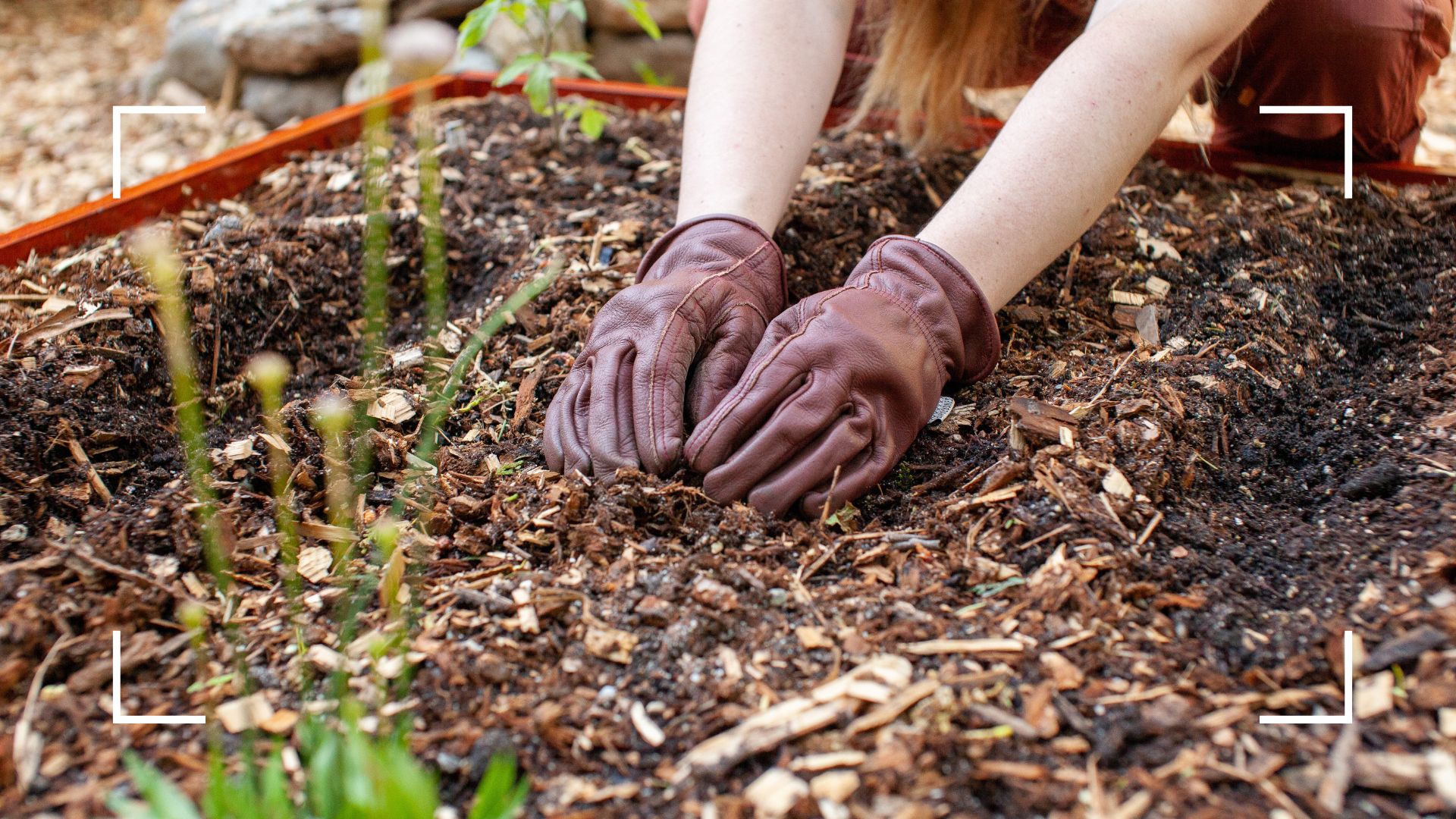

If you're looking to improve your garden's overall health and look, then mulching is the place to start. The experts are here to talk you through the process and how mulching, when done right, can make a huge difference for your plants and soil.
Using sustainable garden ideas not only helps you reduce your waste and energy usage but also makes gardening easier. From using coffee grounds to aerate your soil to installing rainscaping methods for free water, these tips will benefit you and your plants.
Mulching is another versatile gardening method that can help with several tasks or pain points gardeners face. Here, the experts have shared their guidance on how to do it effectively.
What is mulching? And why is so beneficial for spring gardens
If you're an avid gardener, you may have heard of mulching already, you've probably used it to protect your plants from frost or to help get rid of weeds. However, it's surprising how many homeowners aren't aware of just how useful mulch can be in any type of garden.
"Generally, mulch is a material that’s used to cover a garden’s ground and the soil’s surface, and it can be made of many organic materials as well as synthetic ones," explains Petar Ivanov, gardening expert at Fantastic Gardeners. "It has many purposes, which include temperature control, water retention and weed control."
He explains that some types of mulch can even add extra nutrients to the soil whilst also helping make the appearance of a lawn or garden better.
"However, this will also depend on what type of mulch you have because some are considered more visually pleasing than others. Still, even if a mulch isn’t good-looking, it will always serve a functional purpose," Petar adds.
Sign up for the woman&home newsletter
Sign up to our free daily email for the latest royal and entertainment news, interesting opinion, expert advice on styling and beauty trends, and no-nonsense guides to the health and wellness questions you want answered.
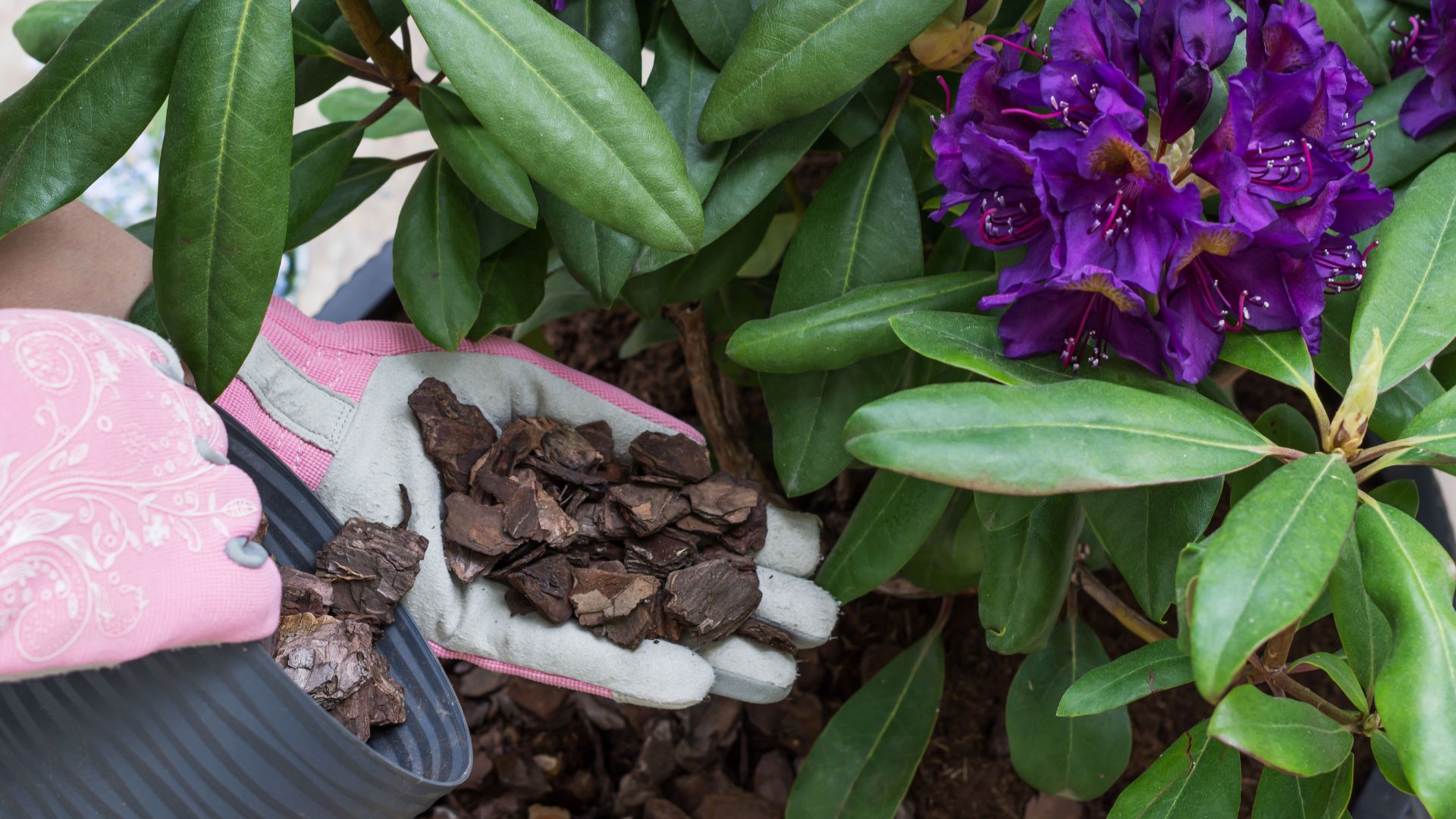
Bark mulch being added to protect a flower bed from the elements
When it comes to how and when to mulch, Petar explains that spring is the best time to get started. It's a great task to add to your essential March gardening jobs, but only if the weather allows.
"Generally, the ideal time for mulch application is in the spring when the weather has warmed up and stays consistently that way. It’s important not to apply it too early because you may bury perennial plants that haven’t yet emerged. Alternatively, you can apply mulch in autumn to help the soil retain moisture better during the winter months and protect plant roots from the cold temperatures," he advises.
Petar does point out that you shouldn't add new mulch over old, instead, you'll need to weed and remove any of the old stuff before you can put down a layer of new. It's also important to know your soil type, that way you'll know what needs to be enhanced. However, regular mulching will benefit all soils so there's not too much pressure on that.
"First, you’ll need to clean the area from weeds and old mulch. And if the soil is too dry, you’ll need to water it thoroughly. Then you can cover it with the mulch you’ve chosen, making sure it’s a layer that’s at least 5cm thick. After that, clean the areas around the stems of your plants from any mulch and finish by raking the surface of the mulch gently to level it," instructs Petar.

Peter has been a gardening and plant expert at Fantastic Gardeners for over 8 years, he is now one of the company's top-performing experts and manages over 6 teams of gardeners. He works on creating stunning landscapes and prioritises sustainability in his gardening methods.
Shop mulching essentials

RRP: £12.64 | These Gold Leaf RHS collections Chelsea Ladies Comfortable Leather Gardening Gloves are perfect for any job you need to tackle in your garden, especially spreading mulch around your plants
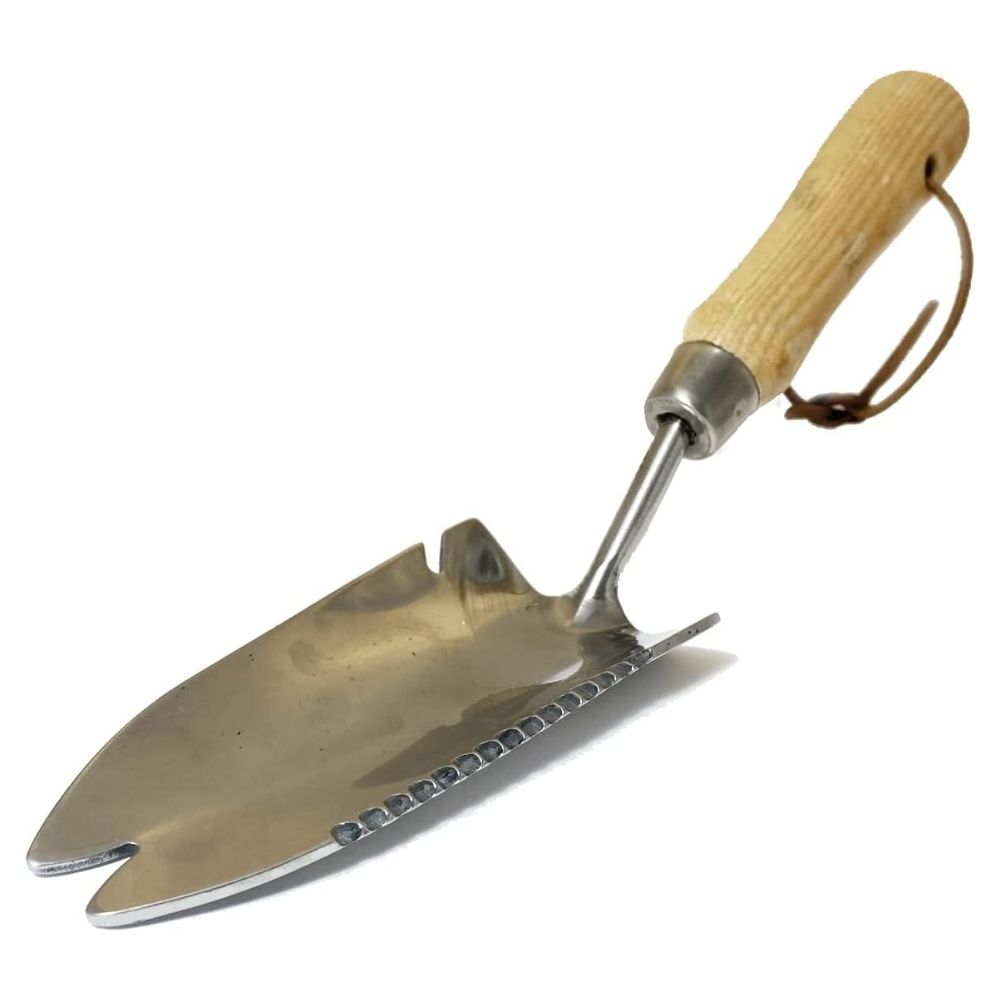
RRP: £15.95 | This hand trowel does it all, from cutting through root balls to using the fishtail tip to lift rooted weeds in flower beds before mulching them.
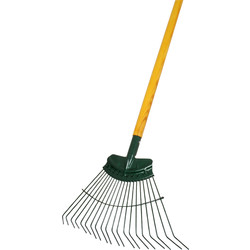
RRP: £22.48 | This model's head has 20 oil-treated tines for extra strength, making it ideal for smoothing out mulch and compost.
What is the best thing to mulch a garden with?
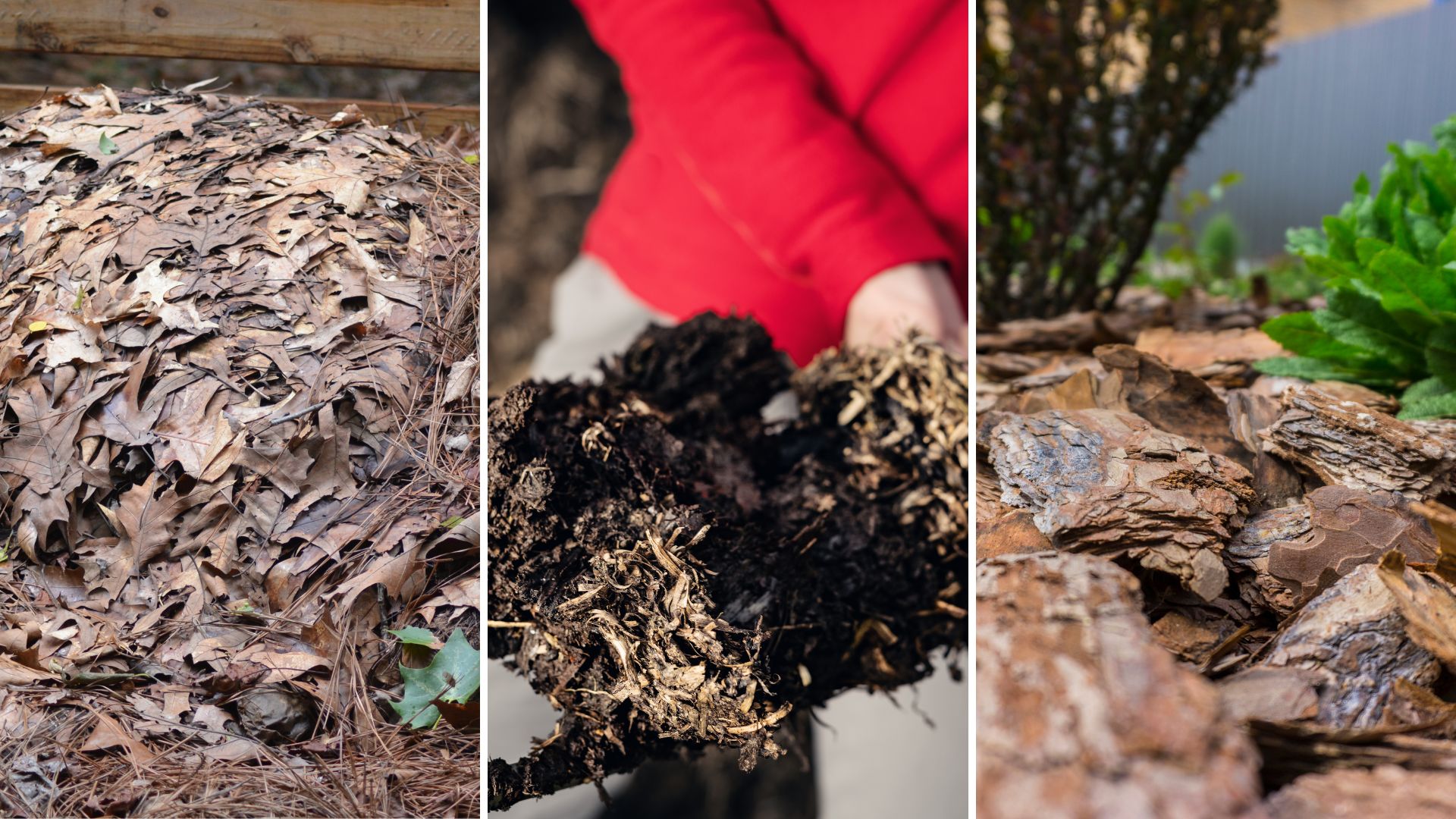
Three different types of mulch, from left to right, leafmould, well-rotted manure and bark chippings.
Now you know how to mulch, it's helpful to learn what types there are and what they can offer. As Petar mentioned, finding out what soil type you are working with can help this process.
"When mulching your garden, it is best to use an organic mulch as these will eventually break down into the soil, whereas inorganic mulches do not and can stop nutrients reaching the soil," explains Graham Smith MCIHort, horticulture expert at LBS Horticulture. "Certain inorganic mulches may also pollute the soil if they begin to deteriorate, such as plastic sheeting, even if they can offer better long-term weed suppression."
He recommends three different types of organic mulches:
- Leaf mould: Although leaf mould is low in nutrients, Graham says it provides fast reward with minimum effort. To make it, you simply collect fallen leaves in autumn and store them in a plastic bag for around a year so they can completely decompose.
- Well-rotted horse manure: "Horse manure contains a lot of nutrients and is great at retaining moisture. However, you should only use horse manure that has been left to rot for a minimum of two years, as otherwise it may scorch foliage and remove nutrients from the soil when it breaks down," explains Graham.
- Wood chips/Bark: This is a bulkier alternative to other kinds of mulches and it will break down a lot slower. It can improve soil drainage and moisture retention, whilst also providing a neat finish to flower beds or garden borders.

Graham has extensive knowledge in the horticultural and gardening industries, and prides himself on using this to help gardeners of all skills create their perfect outdoor space.
What is the disadvantage of mulching?
Unfortunately, as with most garden tasks, there can be downsides and it's best to know them before you start.
"There can be a few disadvantages to mulching, as certain kinds can provide the ideal environment for pests if not maintained properly," explains Graham.
He says that when you're using organic mulch, you need to only apply it when it's in the process of decomposing or partially rotted. "Otherwise, the mulch can remove nitrogen from the soil or cause anaerobic decomposition which can make the mulch acidic and potentially damage plants," he explains.
Another possible issue can come from excessive application as too much mulch might suffocate plants as the water and oxygen struggle to penetrate the layer. This can then cause heat retention, so it's important to ensure the mulch is thinly placed a few inches away from the base of the plant.
FAQs
When should you mulch a garden in the UK?
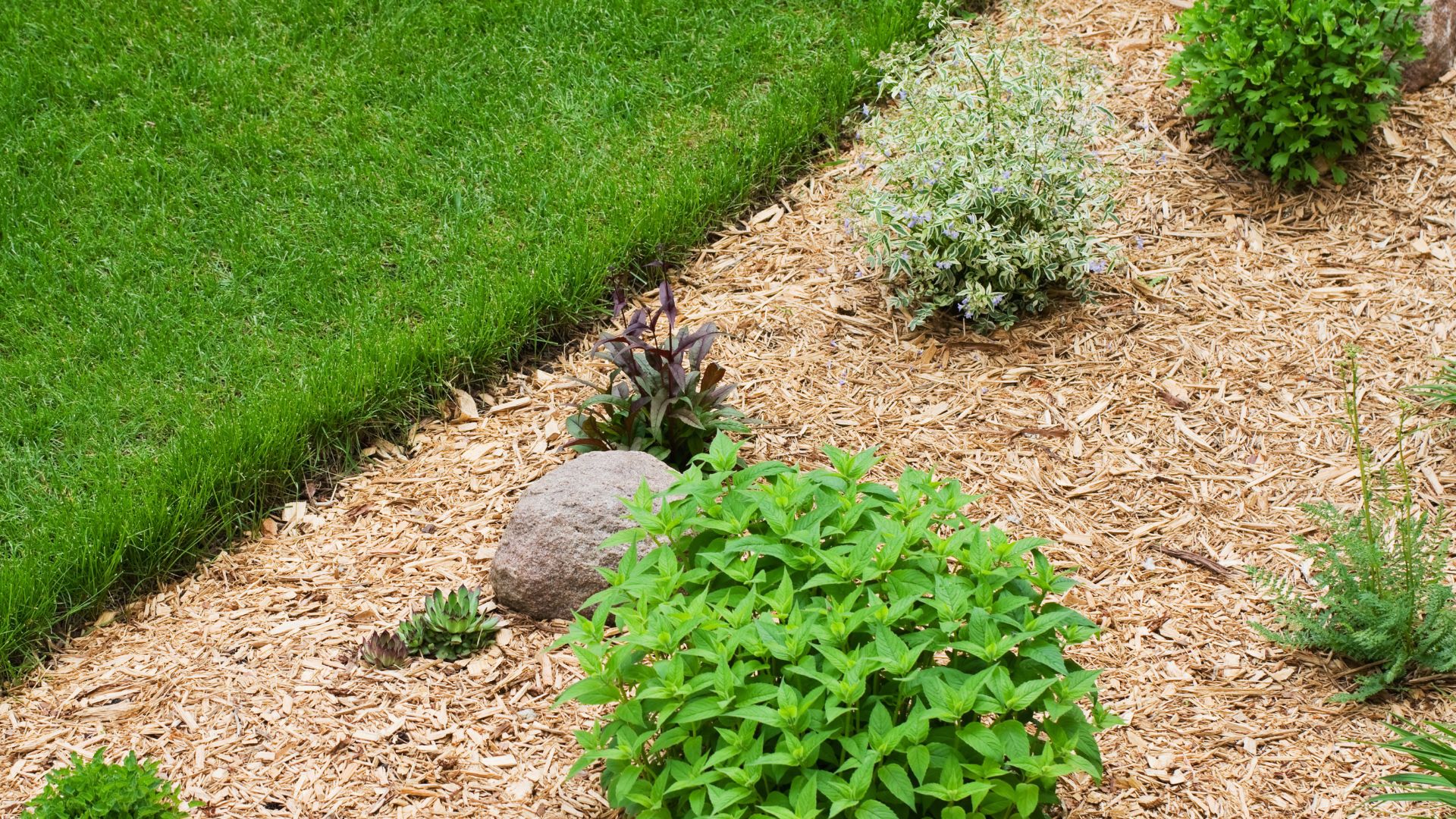
Timing is everything when it comes to gardening, whether that's knowing when to plant spring bulbs or completing summer-only jobs, mulching has similar timeframes.
"Mulch is best applied in mid to late spring in the UK, as annual weeds will have not begun to germinate and plants may be dormant," advises Graham Smith MCIHort, horticulture expert at LBS Horticulture. "You can also apply mulch in autumn, as plants are beginning to die back."
Newer plants that are still established can be mulched at any time of the year as they'll benefit from the weed suppression and moisture retention mulching provides.
Is mulch the same as compost?
There can be some similar ingredients in homemade compost and some organic mulches, but the two are different.
"Mulch and compost are often confused, but they serve different purposes. Mulch is a protective layer applied to the soil’s surface, while compost is decomposed organic material mixed into the soil to improve its structure and nutrient content," explains Peter Chaloner, managing director of Cobra, home of garden machinery.
Along with mulching, there are several other ways you can sort your garden out after winter. Getting these things done as soon as the weather improves, means you're outdoor space will be ready in time for long evenings and summer dinner parties.

Emily joined woman&home as a staff writer after finishing her MA in Magazine Journalism from City University in 2023. After writing various health and news content, she now specialises in lifestyle, covering unique cleaning hacks, gardening how-tos, and everything to help your houseplants thrive.
-
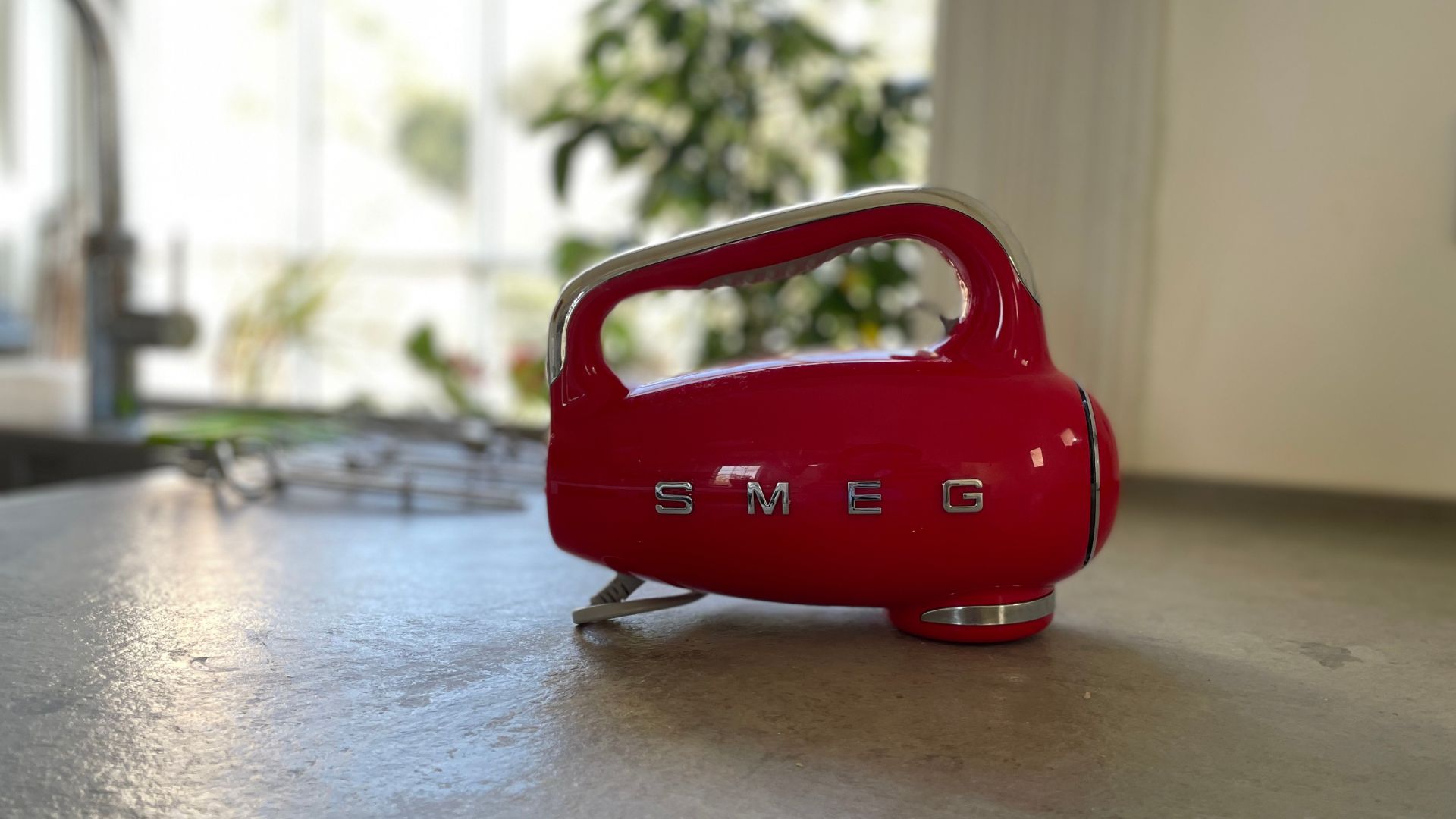 Smeg's retro hand mixer puts the 'king' in baking - I'm convinced it's the best
Smeg's retro hand mixer puts the 'king' in baking - I'm convinced it's the bestThe Smeg 50s Style Hand Mixer is every keen baker's dream: it whips up cream, mixes cookie dough, and kneads bread like the best hand mixers on the market
By Laura Honey Published
-
 From highlights to glosses, here's everything you should know before colouring Afro-textured hair
From highlights to glosses, here's everything you should know before colouring Afro-textured hairKeep your curls and coils healthy during colour processes with this beauty editor's guide
By Keeks Reid Published
-
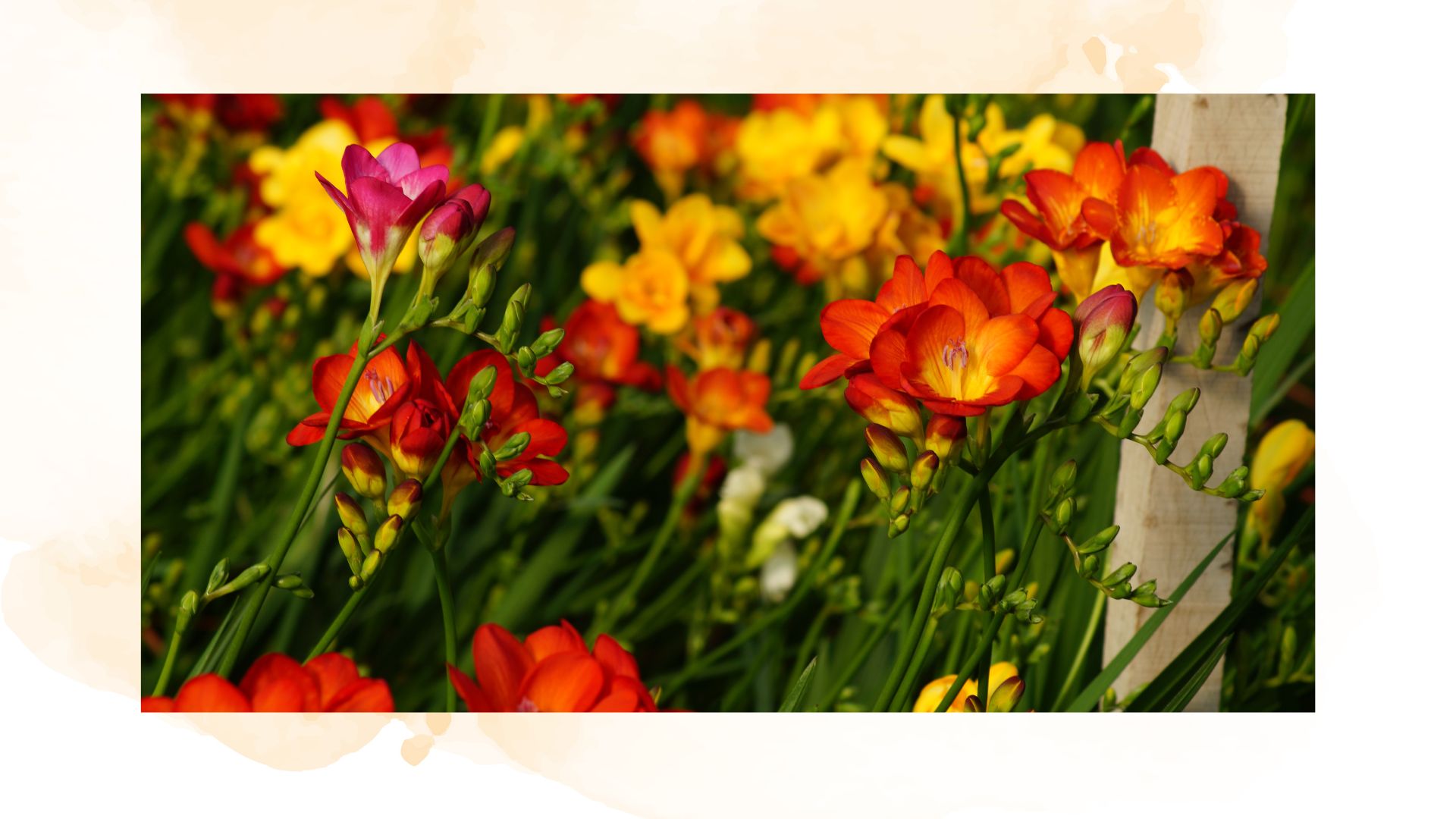 How to plant freesia bulbs: easy steps for colourful summer blooms
How to plant freesia bulbs: easy steps for colourful summer bloomsIf you're looking to add some vivid colour and life to your garden, freesias are the perfect choice
By Emily Smith Published
-
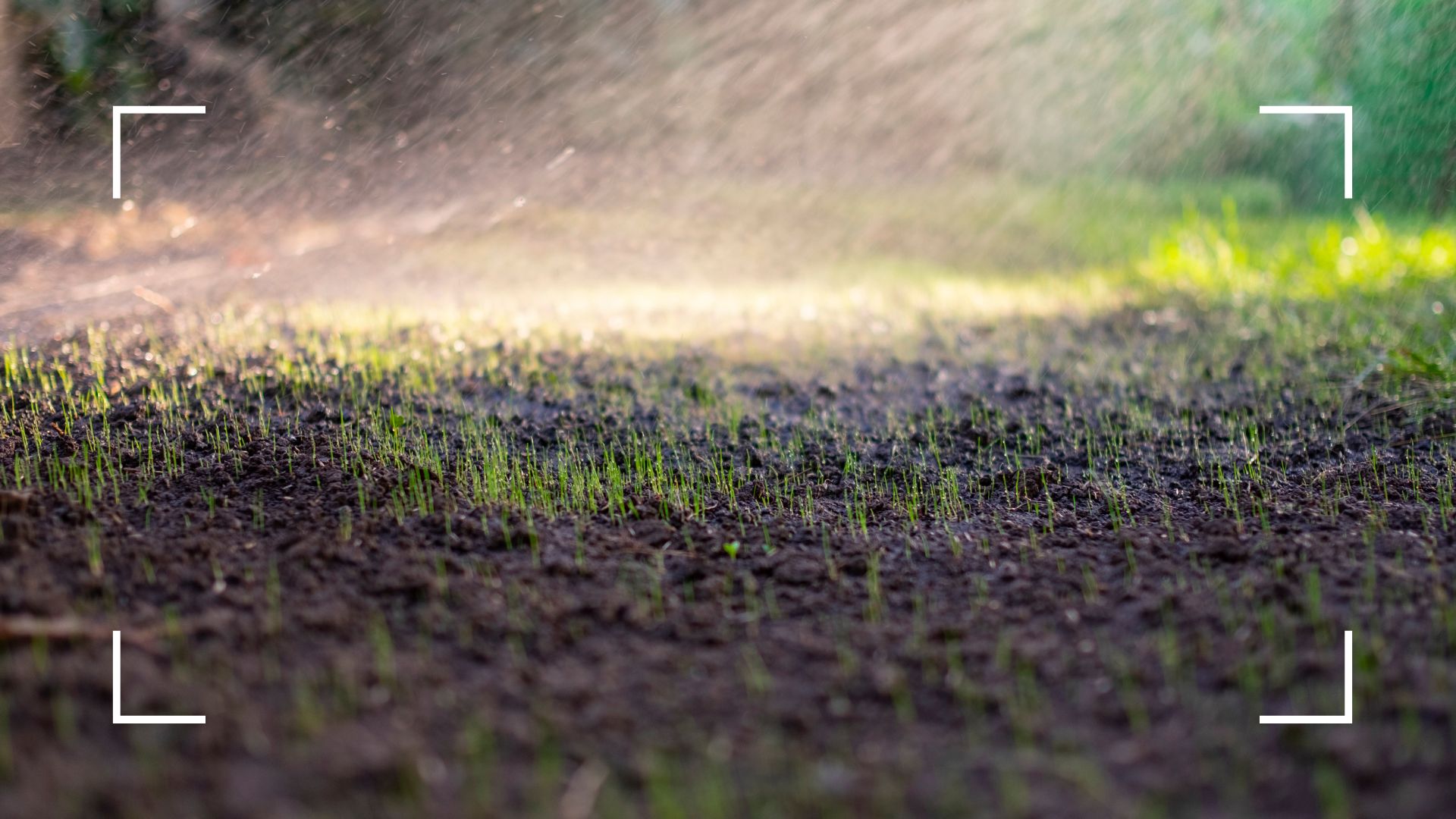 Gardening experts reveal how often you should water grass seed for a luscious lawn this summer
Gardening experts reveal how often you should water grass seed for a luscious lawn this summerWant your lawn to be looking its best by the time summer rolls around? You'll need to make sure you're watering it the perfect amount
By Emily Smith Published
-
 Lynsey Crombie reveals the surprising laundry mistake leaving your clothes smelling 'stale and nasty'
Lynsey Crombie reveals the surprising laundry mistake leaving your clothes smelling 'stale and nasty'Do your clothes smell unpleasant even after you've washed them? It could be your fabric conditioner
By Emily Smith Published
-
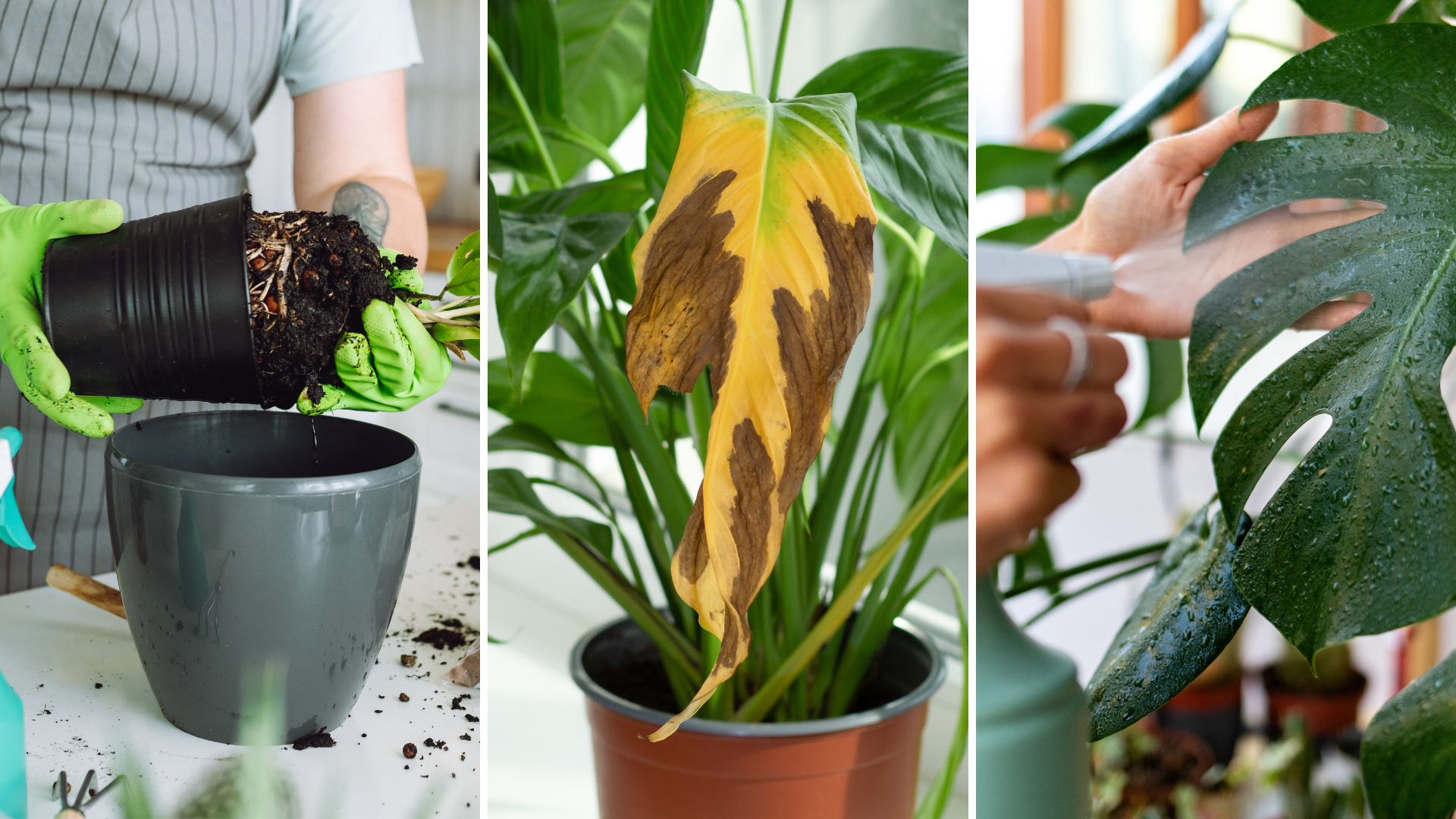 6 common houseplant myths to ignore, warn horticulture experts
6 common houseplant myths to ignore, warn horticulture expertsThese common misconceptions about caring for indoor plants might surprise you – they feel perfectly logical
By Emily Smith Published
-
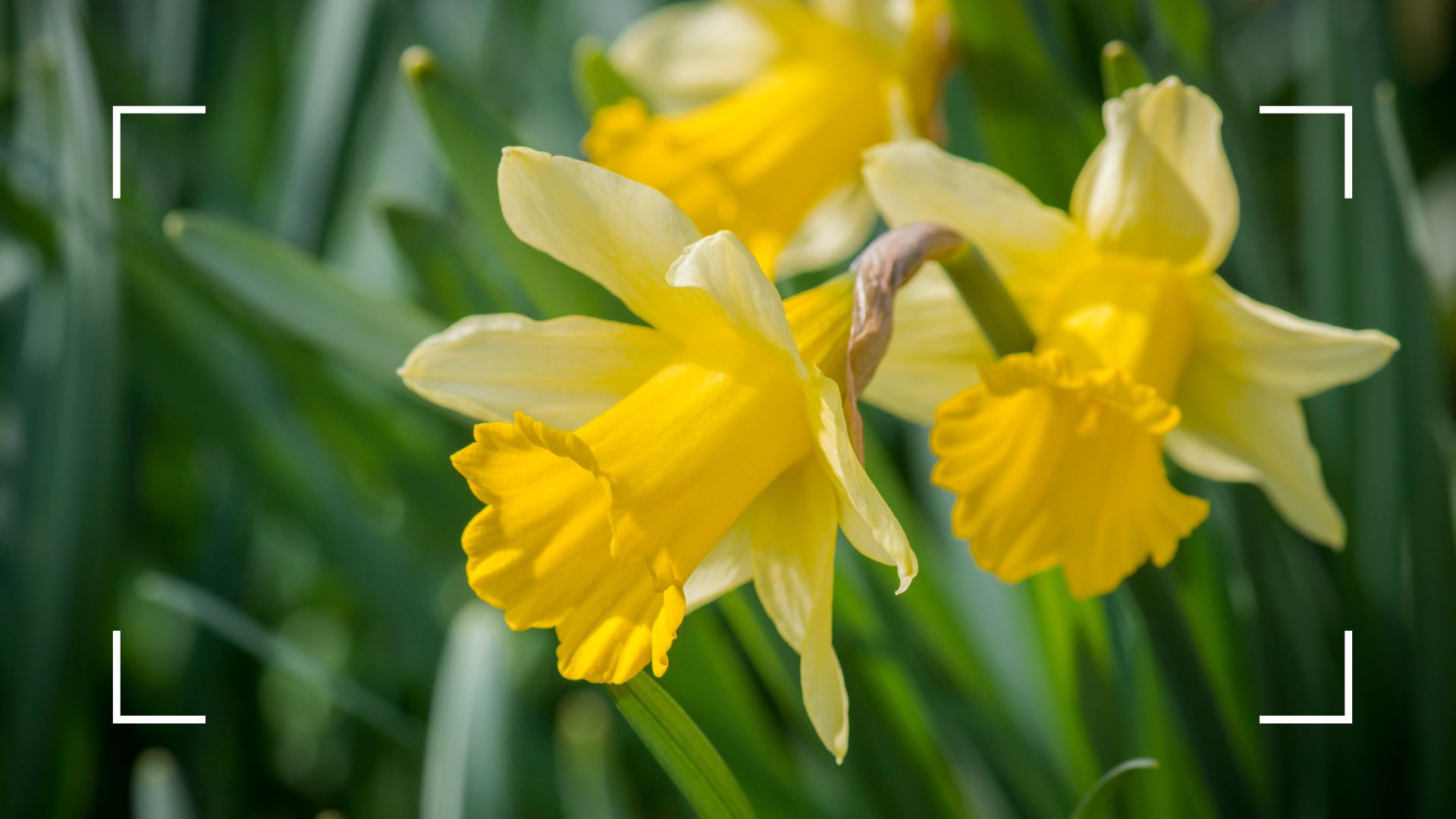 Should you deadhead daffodils? Gardening experts share their advice for longer-lasting blooms
Should you deadhead daffodils? Gardening experts share their advice for longer-lasting bloomsThese butter-yellow flowers are one of the first signs of spring, but should you deadhead or leave them be?
By Emily Smith Published
-
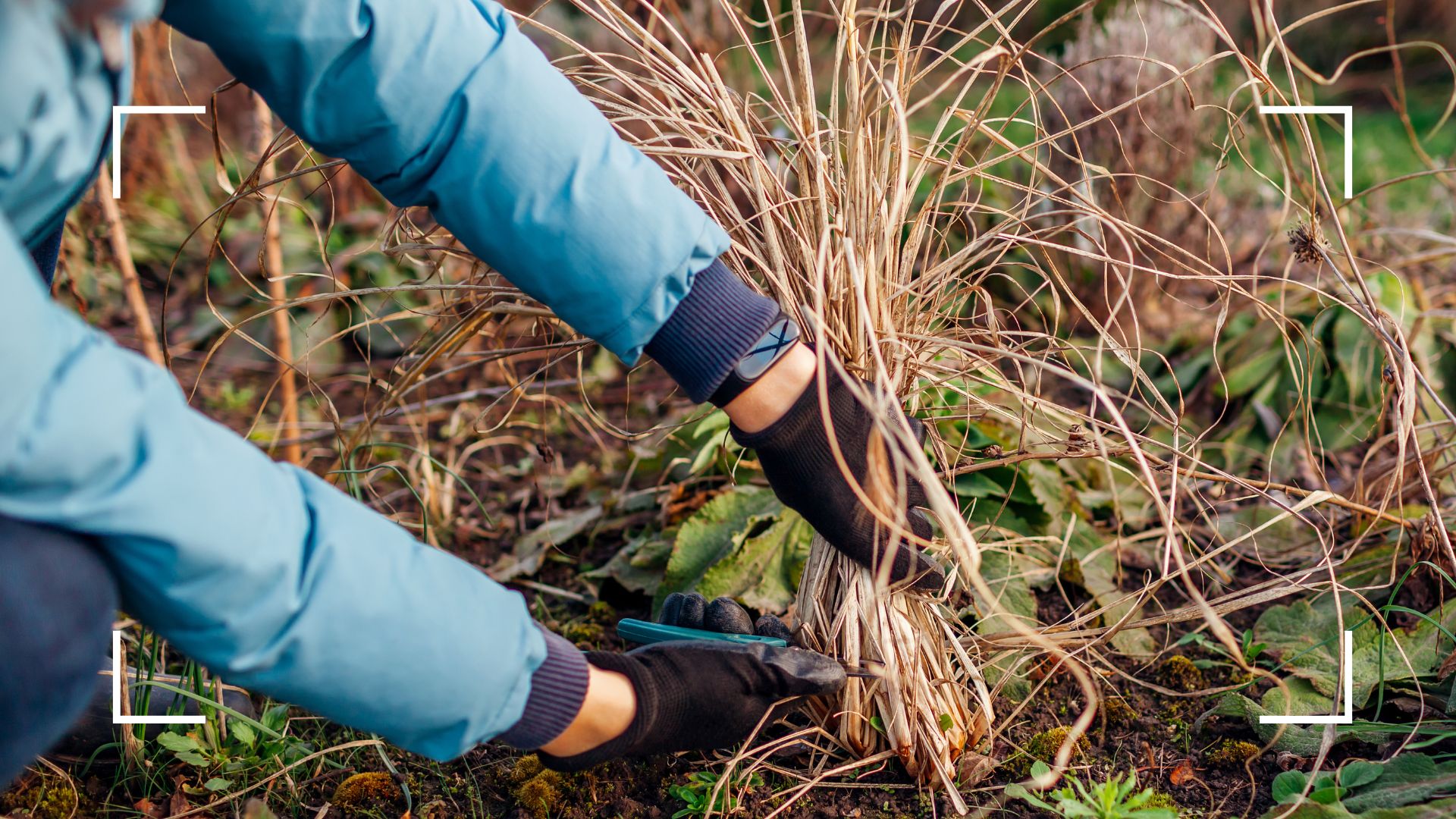 It's time to cut back ornamental grasses, and the expert team at Sarah Raven are here to help
It's time to cut back ornamental grasses, and the expert team at Sarah Raven are here to helpWith spring well and truly here, the team share their top tips to get ornamental grasses ready for new growth
By Emily Smith Published
-
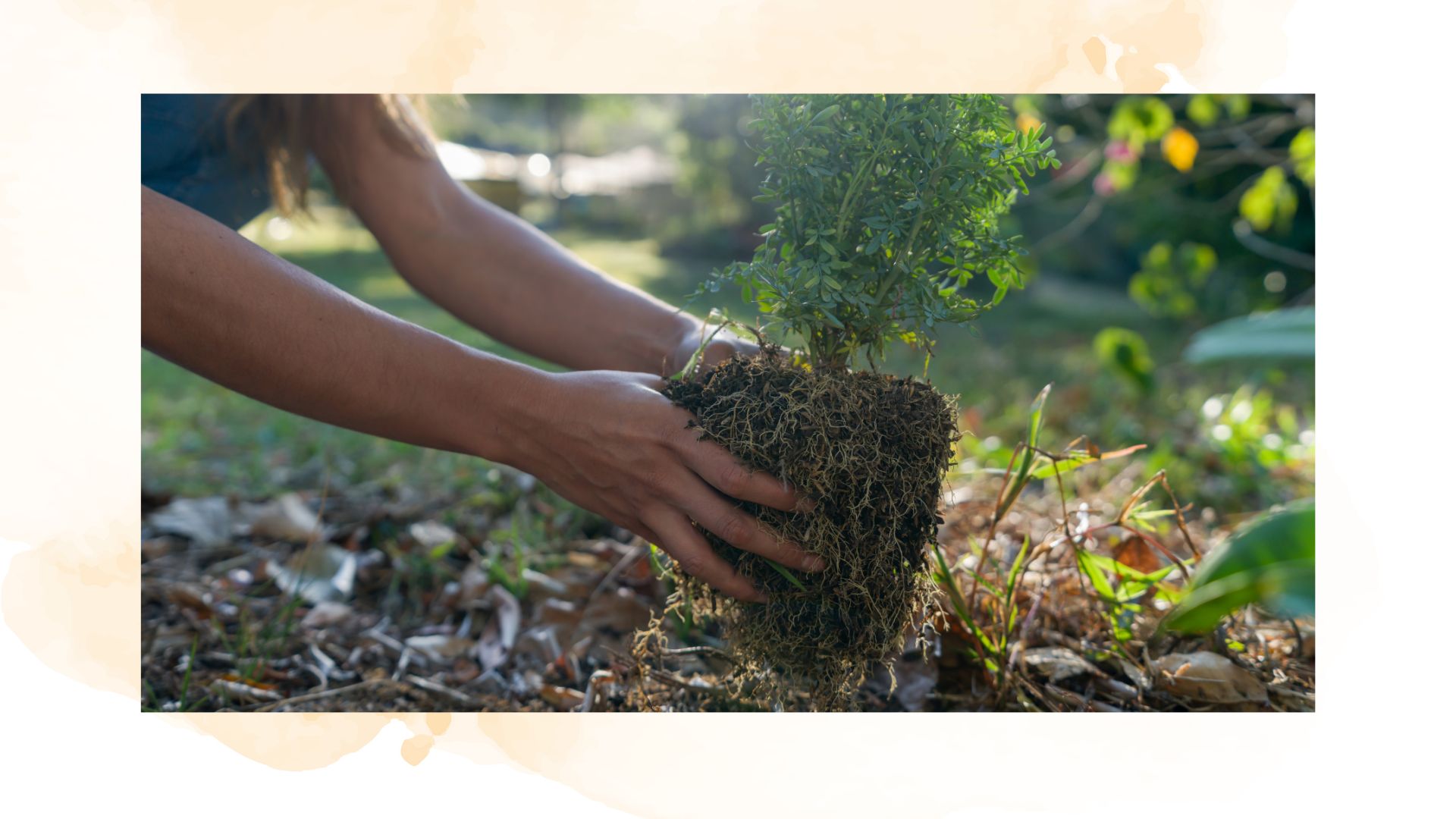 Monty Don's 'genius' planting trick gives outdoor plants the best chance of thriving
Monty Don's 'genius' planting trick gives outdoor plants the best chance of thrivingThis mess-free trick will make planting seamless - and give your plant a great headstart
By Emily Smith Published
-
 Aldi's on-trend pistachio green air fryer is just £29.99 – stylish and affordable, I had to get one
Aldi's on-trend pistachio green air fryer is just £29.99 – stylish and affordable, I had to get oneColourful, compact and cheaper than comparative models – all the ingredients that made this Aldi Specialbuy hard to resist
By Tamara Kelly Published